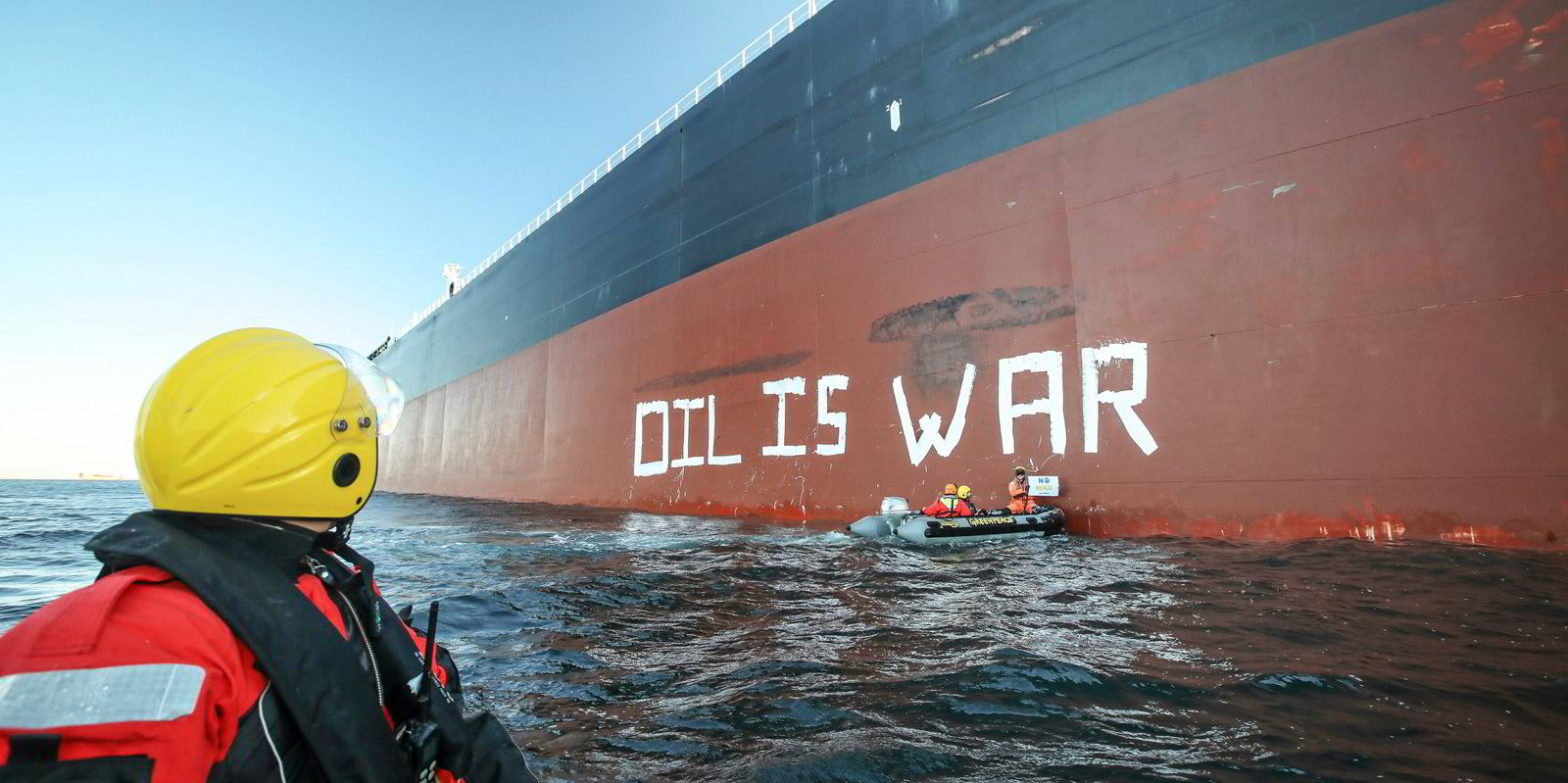Shipping providers who “wilfully violate or evade” the Russian oil price cap from 5 December will be the key targets of US enforcement, according to new guidance.
The US Treasury released a 12-page document on the scheme’s operation but without detailing the level of the cap below which oil can be shipped to countries outside of the G7, the European Union and Australia without breaching sanctions.
The G7 in September agreed to the US-backed scheme that would allow Russian oil to continue to flow to countries outside of the EU, which imposes a ban on seaborne imports from 5 December and for refined oil products two months later.
The US Treasury document follows the UK’s guidance published last week that warned of potential penalties of more than £1m ($1.19m) with a further EU paper expected imminently.
But the US guidance is seen as the most significant owing to the importance of the US banking system, the role of the dollar in oil trades and previous US history of imposing the largest penalties for sanctions breaches.
The document does not give details on potential penalties but says that shipowners and other actors will not face penalties if they “inadvertently” violate the rules of the price cap.
“Safe harbour from enforcement against violations of the determination will be afforded to shipowners and service providers that act in good faith,” the guidance said.
The Office of Foreign Assets Control “intends to focus its enforcement responses on those actors who wilfully violate or evade the price cap”.
The guidance published on Tuesday covers areas including US providers of shipping, insurance, financing, brokering and flagging services.
It offers a “safe harbour” from penalties for shipping services that “inadvertently” breach the price cap rules but only if they can be shown to have taken measures to follow the cap.
Shipowners were told to keep records for five years to be given some protection if they are duped by falsified or erroneous records supplied by others involved in the trades.
Shipping agents must request and retain documents to show that Russian oil was bought at or below the price cap, the guidance said. If that is not possible, they must obtain signed undertakings.
Refusal to supply the necessary documents “should be considered a red flag that may indicate the entity has purchased Russian oil above the relevant price cap”, it said.
The US previously announced a delay to the effective start date of the cap as it allows for oil loaded before 5 December to be delivered before 19 January 2023.
Details of the scheme are still being thrashed out by the EU less than two weeks before it is due to be introduced. The level of the price cap is expected to be announced this week.

It follows failed attempts to bring on board key Russian oil importers China, India and Turkey, and scepticism from the industry about how it will work.
Sanctions experts have warned that the costs of compliance and risks if anything goes wrong are likely to see many mainstream shipowners shun the trade despite the high premiums on offer.
Russia has repeatedly said it will not sell oil to anyone involved in the scheme.
“We have no reason to expect that they would do that because, ultimately, it’s not in their interest,” a US Treasury official said, according to Reuters.





